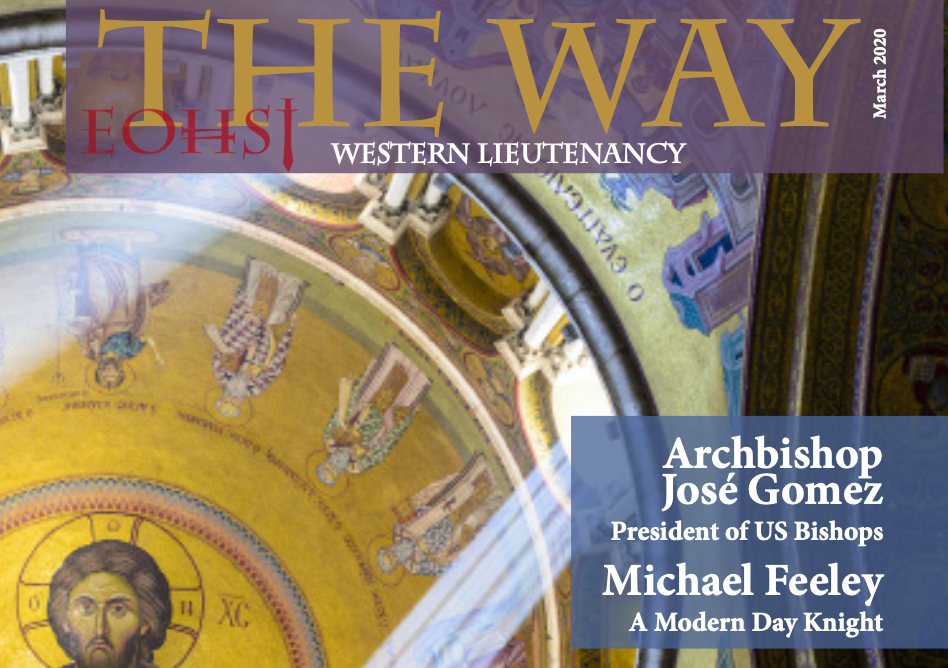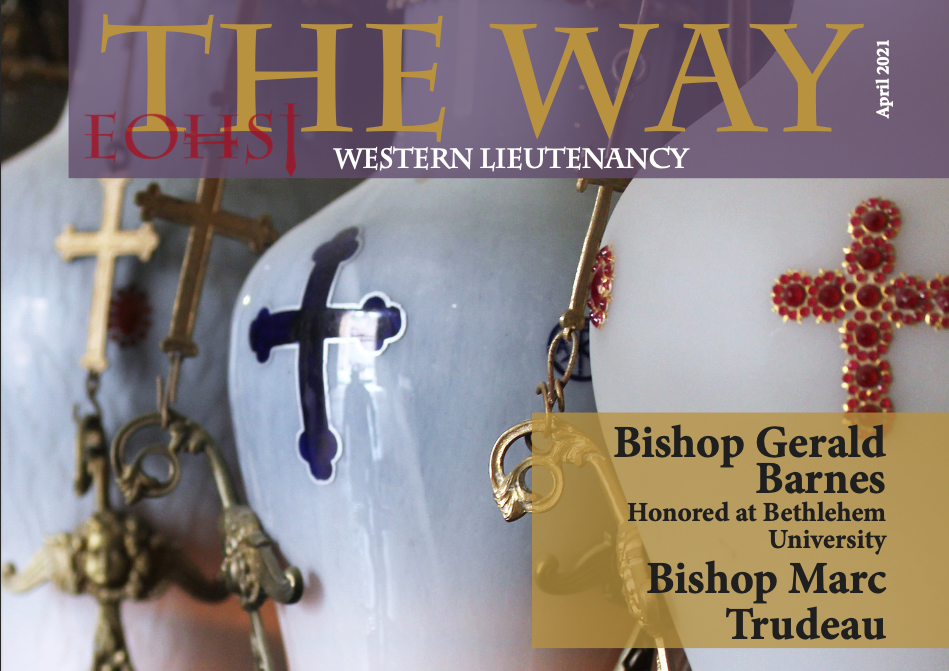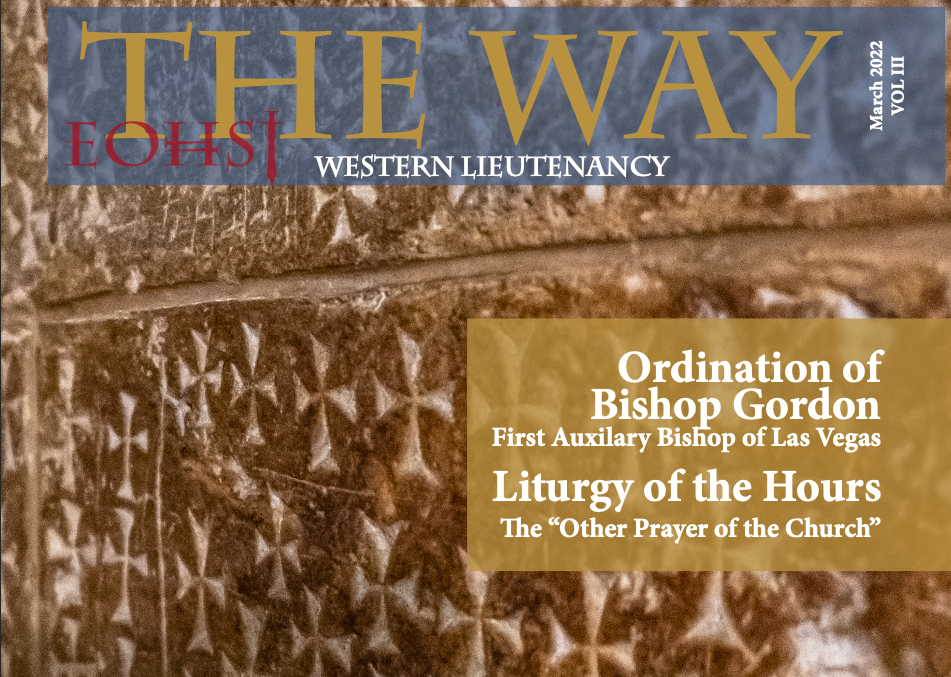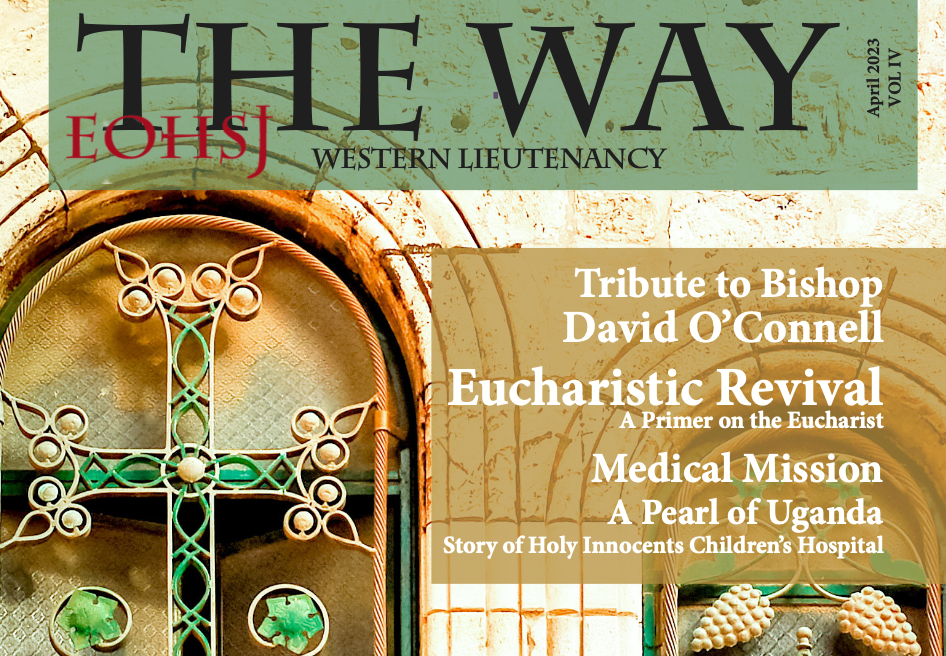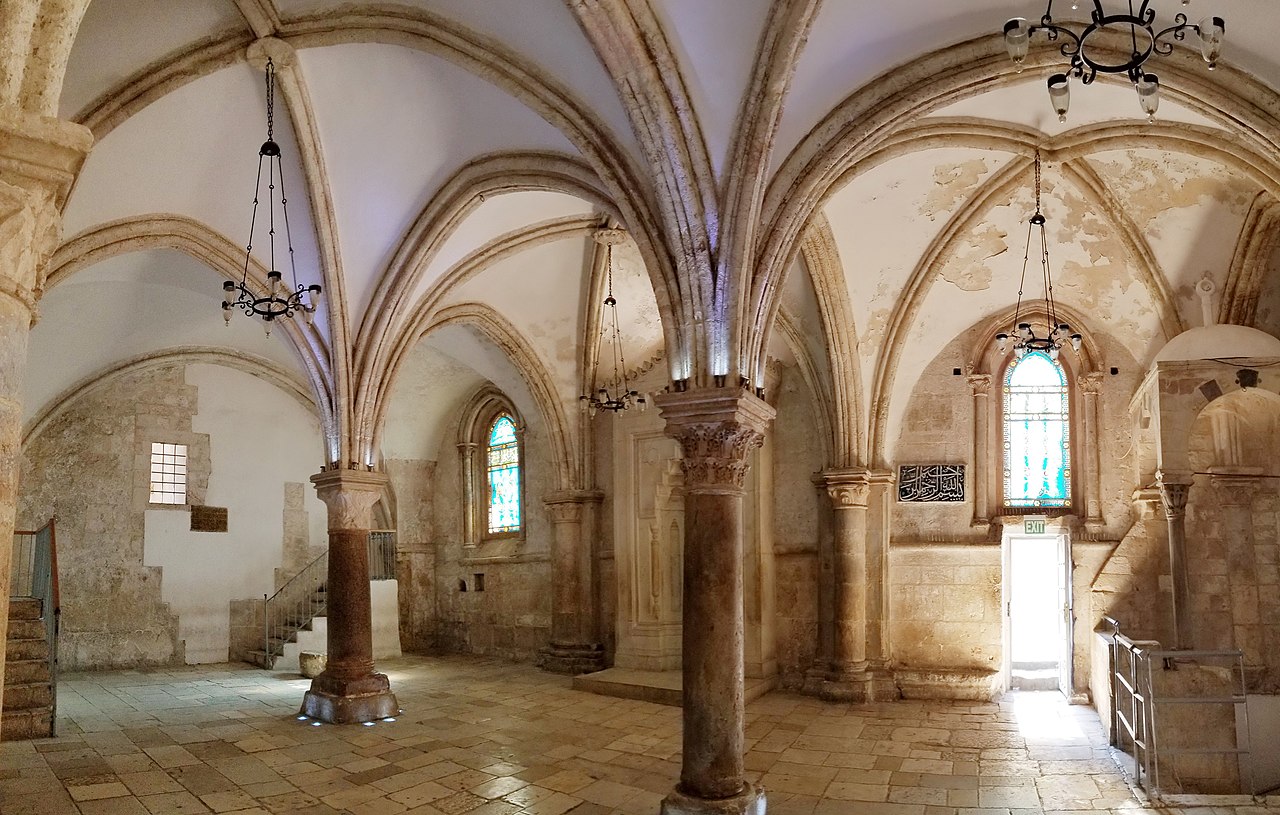
Dear Knights and Dames of the Holy Sepulchre of Jerusalem,
There is a passage, one of the most significant in the Gospel, in which the ‘word’ of the Lord becomes a gesture charged with a new content and which helps us to enter into the Lord’s Passover. Gesture, we know, is always a language that reinforces the word; indeed, it not infrequently makes it more evocative.
Let us come to the passage in the narration given to us by the evangelist Luke: the Master is in Jerusalem on the occasion of Passover; he had spoken extensively about vigilance, warning against hypocrisy and deception; standing in the Temple Atrium, he wanted to comment on an almost insignificant and hidden gesture, the offering of a poor widow who, upon entering the House of God, donated her own contribution of two pennies, all that she had; it was a gesture of most beautiful love for that Place that was the space of the glorious presence of the Most High in the midst of his People: the Shekinah of God; about Jerusalem, Jesus then foretold the day when the Holy City would be humiliated, destroyed and deprived of its spiritual nobility. It had been a tiring day and in the evening, He went to the ridge of the Mount of Olives to pray before the City of David. Those who have made a pilgrimage to the Holy Land know that evocative place in front of the imposing wall and the Temple esplanade well.
The next day, as the Feast of Unleavened Bread was at hand, Jesus, wishing to celebrate the Passover, sent Peter and John to prepare the necessary: place, bread, wine, bitter herbs, saying: “Go and prepare the Passover for us, so that we may eat it” (Lk 22:8). The Passover, so rich in symbols for Israel, is for Jesus the last, but also the occasion for a new event that he has in his heart: the institution of what for the Church will become the sacramental Passover, the Eucharist: “When the hour had come, He reclined at the table, and the apostles with Him. And He said to them, “I have earnestly desired to eat this Passover with you before I suffer… when He had taken some bread …He broke it …, saying, “This is My body which is given for you; do this in remembrance of Me…; he took the cup, saying: This cup which is poured out for you is the new covenant in My blood…’ (Lk 22:14).
The sign of breaking the ‘Bread’and ‘taking the Chalice’ will become the mark of the recognition of the risen Master.
In Jesus’s action, the ‘word’ became a significant ‘gesture’, that is, a sacrament. Around it the Church will gather, and Christians will recognize themselves as Koinonia, that is, Community of faith in the Risen One, in which each baptized person will have an ‘ecclesiological’ existence to which he or she is bound forever. Therefore, in the word of Jesus that becomes gesture, there is the entire sacramental ‘sign’ handed over to the Church; in this sense, in faith, we also welcome him.
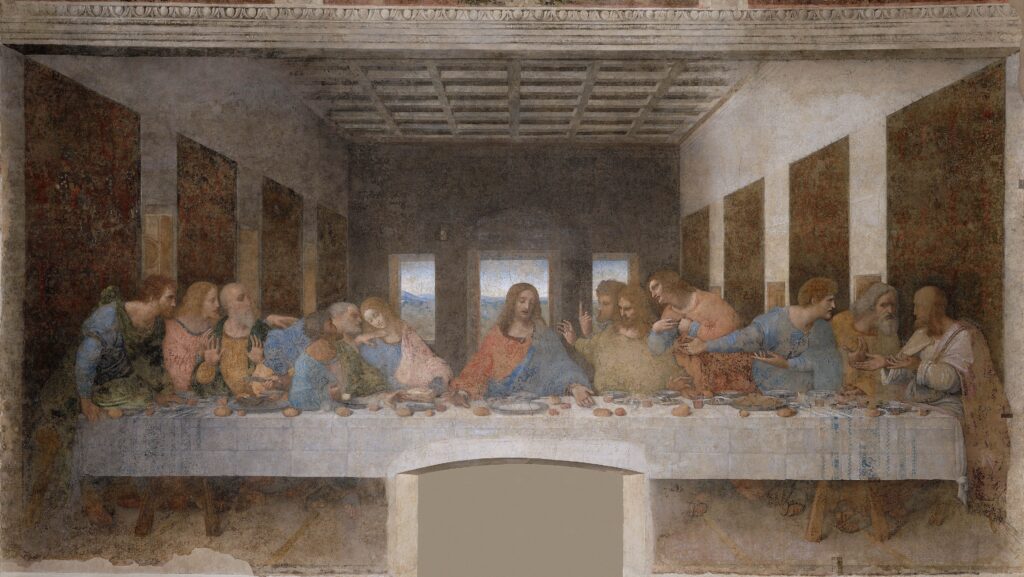
“Jesus took the meaning of the Passover into himself, giving it back to us renewed in a new Covenant, took from us the humiliation of sin and the drama of death, and offered us forgiveness and the glory of the resurrection, delivering it to us in the Sacramentum novum.“
Like Peter and John, we are also called this year to prepare for Easter, knowing full well that, as Knights and Dames of the Order of the Holy Sepulchre, we are indissolubly linked to the mystery of Christ; we cannot fail to heed Jesus’ invitation: “Go and prepare … Easter“, without being spiritually and emotionally involved in the Lord’s new event in all its beauty and richness. That request of Jesus directly concerns us.
There would be no point in going on pilgrimage to Jerusalem if we did not have the profound meaning of who we are and wish to be; if we did not have the desire to relive the Passover of the Lord and with the Lord, because every pilgrimage is a going to prepare the Passover in our life, in our faith. Easter remains the event that unites the eternity of God in Christ, with our time.
This year too, notwithstanding the dramas that are upsetting the Holy Land, let us accept that invitation addressed to Peter and John, those words of the Lord that He then translates into a sacramental gesture; not out of habit, which often accompanies our religious anniversaries, but out of making present the Easter grace as if it were the only or even the last of our lives. For the Apostles it was indeed in the Last Supper with Jesus before his passion, in which they would understand the meaning of the new ‘Covenant’ founded in the mystery of death and resurrection. The ‘gesture’ performed by Jesus at the Last Supper, which had remained suspended so to speak in view of the Lord’s passion and death, regains its fullness in the Lord’s Easter resurrection and is restored to the Apostolic Community and the Church as an Action of Grace.
Paraphrasing a reflection by St Augustine (on Psalm 60) we can say that Jesus took the meaning of the Passover into himself, giving it back to us renewed in a new Covenant, took from us the humiliation of sin and the drama of death, and offered us forgiveness and the glory of the resurrection, delivering it to us in the Sacramentum novum.
In the Easter triduum, which begins with the Eucharistic Supper on Holy Thursday (day one), let us unite ourselves to the suffering in Gethsemane, follow Christ in humiliation, death and burial (day two), and, making our own the Sabbatical silence (day three), remain in expectation of the Easter resurrection, as the Lord had said.
Happy Easter.
Fernando Cardinal Filoni
Grand Master
(March 2024)

